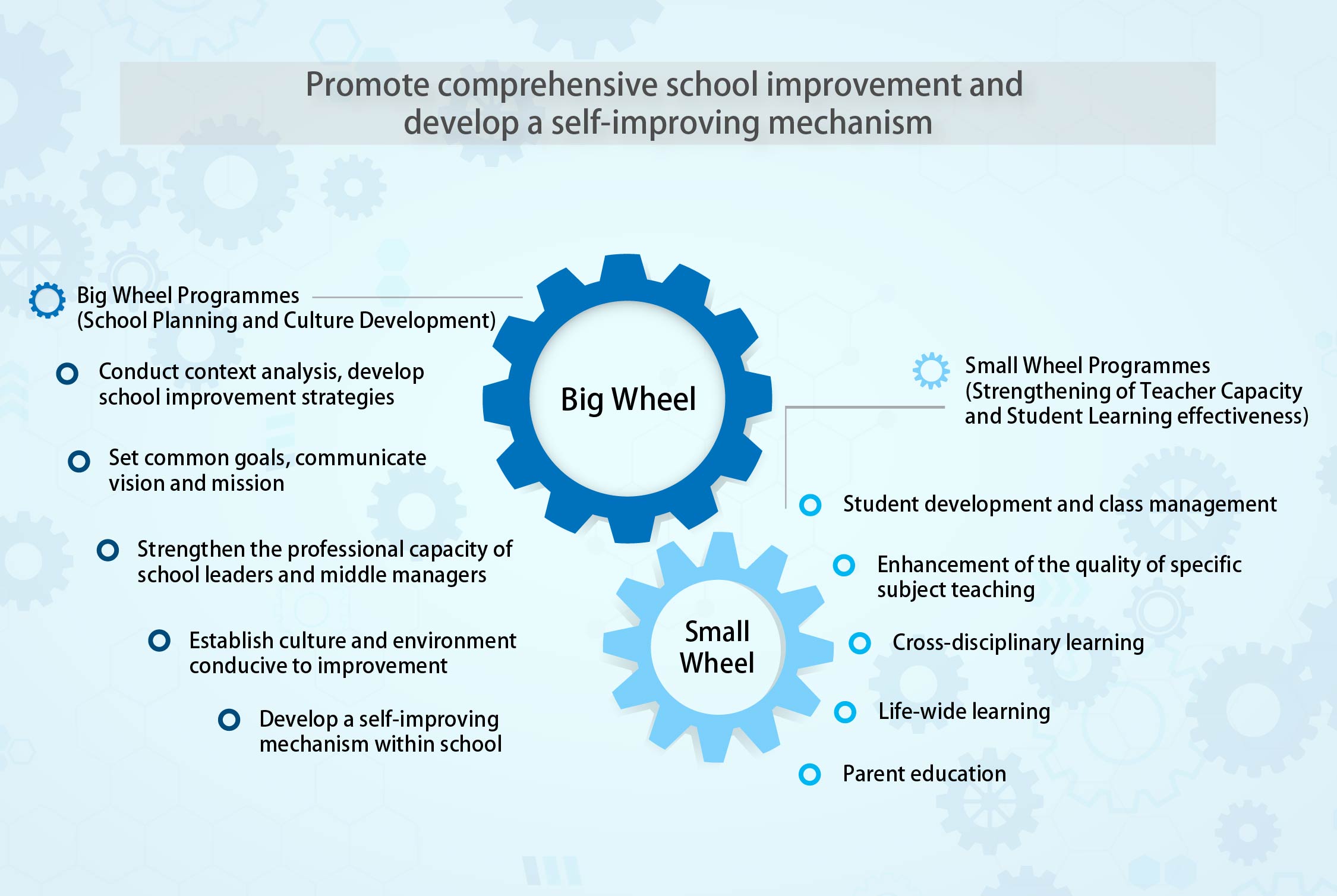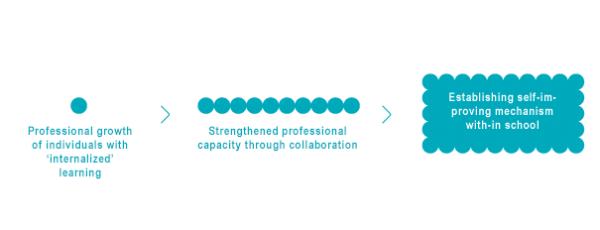Features of Support
Comprehensive School Improvement
The professional support offered by QSIP is based on the rationale of Comprehensive School Improvement.
Our work can be divided into "macro" and "micro" levels. "Macro" level support, also known as "Big Wheel" programme, aims at analysing school context and formulating future development, in order to establish a self-improving system based on teamwork and create a favorable culture. "Micro" level support, also known as "Small Wheel" programme, aims at strengthening teachers’ professional capacity and students’ learning effectiveness through actions and collaborations that enhance teaching and learning as well as student development. Through the complimentary interactions of "Big Wheel" and "Small Wheel" support, school improvement can be fostered continuously and effectively.

School-based Development
QSIP believes that every school is unique, and there is no one-size-fits-all formula for school improvement. The QSIP team is often described as 'School Doctor' by our partner schools because our suggested action plans are based on context and needs analysis. Before initiating an action plan, the School Development Officers carefully diagnose the needs of each partner school by various means, including but not limited to studying its historical development, mission and vision, organisational culture as well as teacher and student characteristics.
Empowerment through Holistic Approach
QSIP tailor-makes holistic plans of supports on 'points' (helping teachers internalise professional learning), 'lines' (establishing collegiality which enhances teachers' professional capacity) and 'planes' (establishing self-improvement mechanism and culture conducive to improvement) to empower comprehensive school improvement.
A Critical Mass of Expertise
Adhering to the philosophy of comprehensive school improvement, the QSIP team comprises a critical mass of experienced School Development Officers (SDOs) with rich knowledge and professional expertise in various Key Learning Areas (KLAs) and aspects of the education field. Our SDOs are former teacher trainers of the Education Bureau and teacher education institutions, experienced frontline practitioners including principals, middle-level leaders and proficient teachers of different KLAs, or experts in the education sector and other areas, which complements theory and practice.



